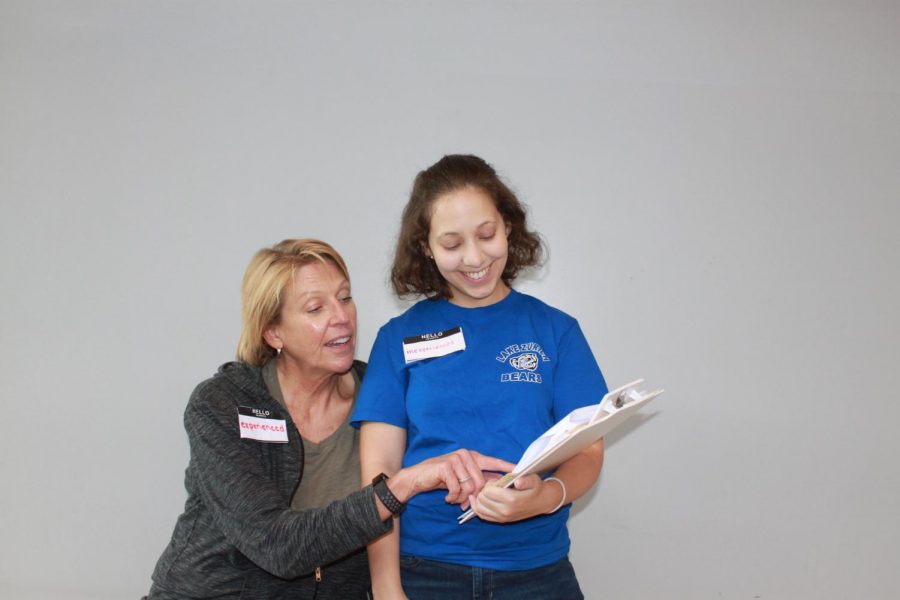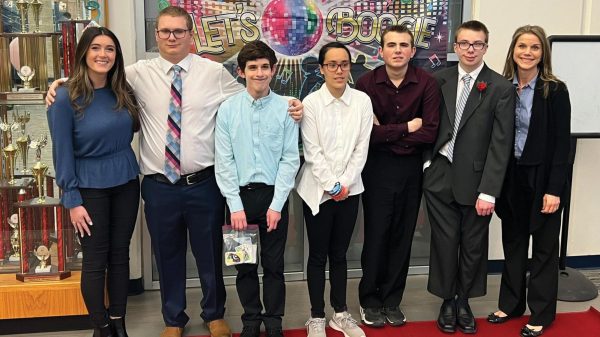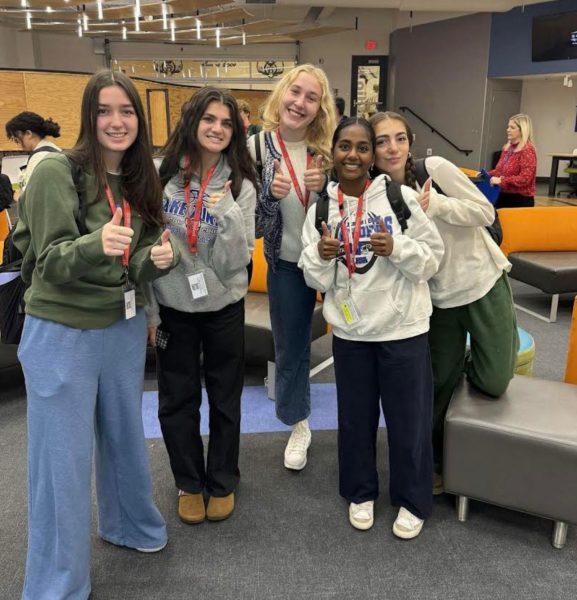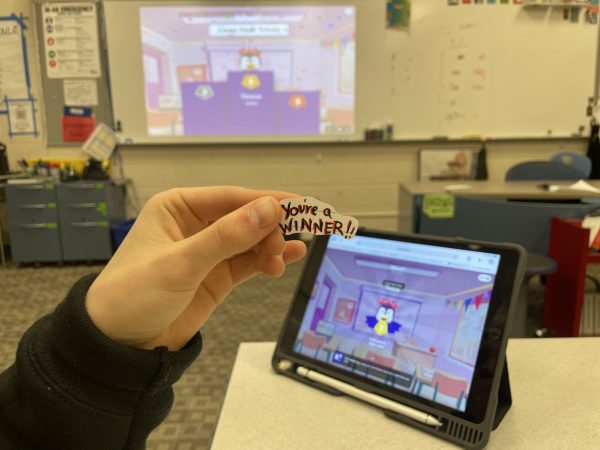Experience vs inexperience
Younger teachers experience equal treatment
Photo by Photo by Max Feldman
Kim Ferraro, social studies teacher, asks for advice from Megan Bajor, English teacher. Younger teachers find that there is a welcoming environment in the school.
Roaming bands of mischievous English teachers who try to wreck as much havoc as humanly possible, a group of social studies teachers who snicker constantly at any mistake, marauding math teachers who throw crinkled up balls of paper at anyone in their sights. To some people’s surprise, this is not what new teachers face as they enter the school for the first time.
Kim Ferraro, social studies teacher who has been here for two years, says that it was tough finding her way around and learning the ropes, but says that more experienced teachers make that task a whole lot easier.
“If you are new in any profession there is sometimes a bit of a learning curve. One thing that is always good about it though is if you have colleagues who have been in this profession for many years,” Ferraro said.
More experienced teachers like Megan Bajor, English teacher who has worked for over 20 years, say that they always make sure to create an open environment, and encourage younger teachers to join the community.
“Our whole school [welcomes new teachers], the English department does, the [entire] staff at our school does, [we are] a very welcoming, friendly, [and] fun staff to be working with,” Bajor said. “There aren’t any cliques, we all help each other which makes for a nice atmosphere.”
One part of this welcoming atmosphere is giving younger teachers advice, Bajor says.
“Sometimes [I tell them] how to handle a specific situation with a student. Maybe if there was trouble presenting [something] in class I can give [new teachers] another perspective on that, [or even just] keeping their spirits up if something is not going right and telling them it will be okay,” Bajor says.
Elisabeth Slaughter, younger English teacher in her second year at the school, says that this advice makes a huge difference in her life in the school, helping to adapt to her new environment.
“Teachers [that have been here longer] are always very eager to offer help. They know that I haven’t been here as long and I might not know how to do something or not know how something works,” Elisabeth Slaughter, younger English teacher in her second year at the school, said. “The faculty here were really very helpful when I started, offering help, materials, and advice, so they’ve been really generous.”
Younger teachers say they take this advice and apply it to the classes they teach, as well as combine it with their own techniques and skills. Ferraro, in particular, says that along with the new ideas that she brings, just being young helps her connect with students more.
“[Being young] is great when it comes to building relationships with students. I remember when I was teaching a lesson in a government class last year, I was thinking about a ‘How I Met Your Mother’ episode, and it really stuck with me. When [there was] a political election there was an episode that talked about that,” Ferraro said. “A bunch of my kids remembered that episode so we were just bonding over that episode in relation to our lesson. Being able to find a current topic is a fun way for [students and yourself] to remember [a lesson].”
Students that have had classes with younger teachers say that the experience is different than classes with older teachers. Jason Saab, junior, says that his experiences with younger teachers contrast those with older ones.
“It was a little more fun, [and] there was a little more energy in the class rather than one with an older teacher. Possibly because of age, with a younger teacher there is more energy that they are willing to put forth,” Saab said. “The younger you are the more enthusiastic you are. I guess with the younger teachers in general they are newer, they want to please the students more, and they’re young themselves so they relate with students more.”
However, with this more laid back environment, some students take advantage of a teacher’s lack of experience, according to Saab.
“I think there certainly is a number students who act a little more disrespectful towards younger teachers than with older teachers, probably because of that age difference. I personally believe [young and old teachers] both deserve respect, but I definitely have seen a portion of the student [body] act a little more disrespectful towards the younger teachers,” Saab said. “A while ago, one of the students talked back to the younger teacher when they were reprimanding the student, and I’ve never seen this with any teacher, but definitely not an older teacher.”
Ferraro says that these situations do happen occasionally, but that the best way to fix that problem is time.
“Sometimes that is a challenge, however, even if I am a younger teacher, I think the best way is just to show the student you are there with them and you are there to support them, they usually have the respect for you in return,” Ferraro said. “Initially, if they don’t know you it’s not too good, but once you build that relationship with student it’s a lot better”.

As a senior, this is Max’s third year on staff and first year as magazine editor in chief for the Bear Facts program. He aspires to study environmental...











